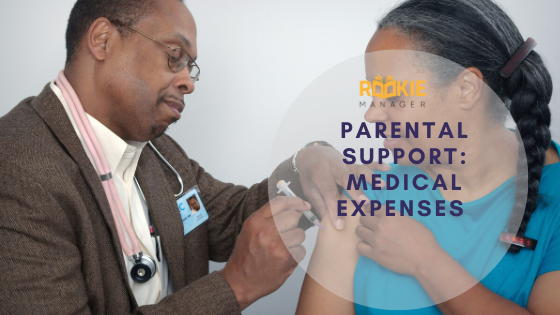Parental Support Part 2: Medical Expenses
As we come to the end of the year and the #52WeekChallenge 2019 edition, this series of posts is supposed to trigger us to reflect a bit more deeply than usual as we make our 2020 money goals. This is the second post in our series discussing how to balance parental expectations in regards to financial support, with our money goals. In the first post, we looked at school fees support.
When it comes to emergencies, especially medical emergencies, there really is not much to philosophize about, especially if you live in most of our African countries where there isn’t a sensible public healthcare system in place. High medical expenses are a real concern and an issue we have to live with, especially as our parents age.
That said, there are a few steps you can take to at the very least minimize the impact of these emergencies on your financial wellness. The first step is to make sure your parents (and young siblings) are signed up to the National Hospital Insurance Fund (NHIF) or the equivalent public insurance scheme in your country. The cost is basic, KES 500 per month in Kenya, and it provides first-line coverage in public and mission hospitals. If you do one thing, let it be this.
The second step, if you have the resources, is to get your parents on some form of private insurance. It is best to buy the insurance as early as possible because many insurance companies do not sign up clients who are over 65 years old, and those that do have incredibly high premiums and a whole lot of exclusions that often render the insurance useless. When signing up for insurance, look at the exclusions list carefully, and the limits to coverage. You may find that if your parents have some medical conditions, there is very little value private insurance provides, because any illness related to that condition will not be covered. In addition to this, you will find that coverage for critical illness is a fraction of the total cover you are paying for. This is the case even for younger clients. For example, if you take a KES 2 million cover, often coverage for cancer will be KES 300,000. It is important to be aware of this ahead of time.
Should your parent(s) fall critically ill, do not shy off from asking for help meeting their medical bills. This is the system we find ourselves in, therefore do not bankrupt family resources doing this alone. Reach out to the extended family, friends, and the internet universe for help.
Finally, prevention and early detection is key. Be proactive in helping your parents manage their health. Here are a few things you can do towards that:
- See to it that they are living healthy lives. This includes facilitating their access to healthy foods encouraging them to do light exercises daily, and ensuring they are getting good sleep and keeping warm. Get them warm clothing and a great mattress.
- Get them a wellness check-up done on an annual basis. Most hospitals offer this service, and the prices are as low as KES 10,000. You can also consult a doctor to do the most critical checks at a low price.
- Accompany them to the hospital, especially where the complaint/issue keeps recurring. Our healthcare system can be dismissive towards older folk where they will be quick to dismiss some aches and pains as old age even when they are treatable. Be present and advocate for your parent(s). Seek a second, and even a third opinion if necessary.
While we cannot totally plan for medical emergencies, we can minimize their impact on our finances. If your parents are not on NHIF, start the process fo getting them onto it right now!



